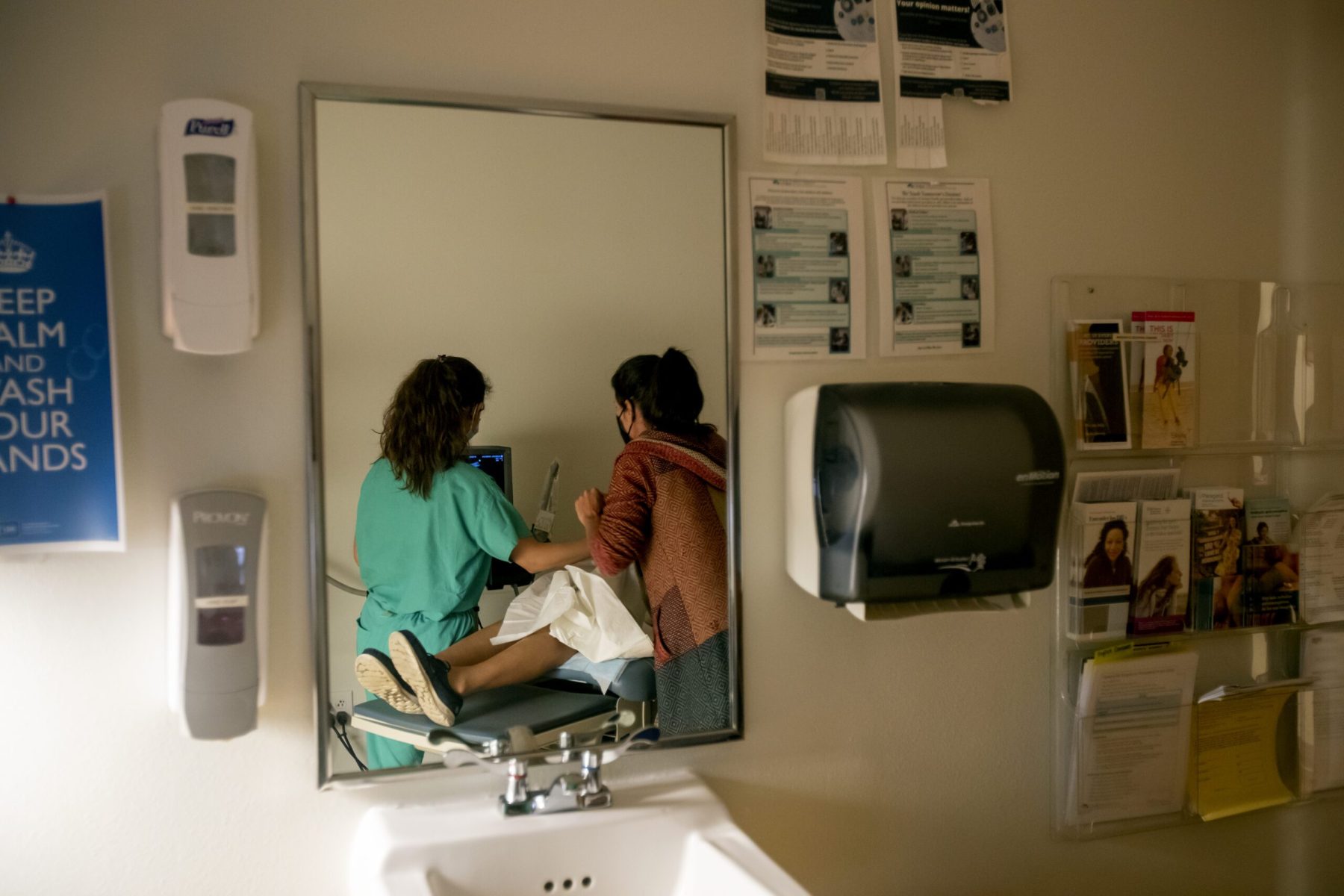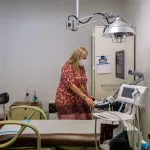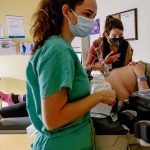Robin Marty has three months. That’s how long the money will last.
The abortion clinic she runs in Tuscaloosa, Alabama, halted abortions following the reversal of Roe v. Wade last month, but it has enough cash reserves to provide other reproductive health services, including birth control, HIV treatment, prenatal care and gender-affirming care through about September.
In that time frame, her staff is working to implement a new model that would keep West Alabama Women’s Center in operation, serving as a key access point for thousands of low-income people in the region who rely on abortion clinics for other services — the kind that are unavailable to them through insurance or that they otherwise would have to get on months-long waitlists to receive.
But clinics rely on abortions as their main source of revenue. Patients usually pay out-of-pocket for them, and they cost $550 on average. Without abortions, clinics will close, and when the lights go out at clinics across the nation — particularly in the South and Midwest — other reproductive care could go dark as well.
“So far we have been doing all of this work using the profits from our abortion care in order to offer these things sliding scale, and that is something that is going to be impossible to do if we don’t have abortion care to fall back on,” said Marty, the operations director at West Alabama Women’s Center, which charges $700 for a first-trimester abortion. “We’re not going to deny anybody care because they don’t have the funds. So we go until we run out or until we figure out how to have a revenue stream.”
Twelve states, including Alabama, have not expanded Medicaid coverage, meaning millions of patients fall into a coverage gap where they earn too much to qualify for Medicaid and too little to qualify for subsidized health insurance through the Affordable Care Act. Many low-income, uninsured or underinsured people seek out reproductive health care, such as birth control, at Planned Parenthood clinics or county health departments. But there are just two Planned Parenthood clinics in the entire state, and waitlists for county services in Alabama are often three to four months.
That’s where the independent abortion clinics step in. One in three low-income women in the United States rely on clinic-based providers — including health centers, Planned Parenthood, family planning centers or publicly funded clinics — to access contraception, according to a 2019 report by the Kaiser Family Foundation. The Roe reversal has caught up with clinics like Marty’s before they could come up with a contingency plan. They saw a barrage of patients from neighboring states seeking abortion after near total bans were imposed in recent months. West Alabama Women’s Center went from serving a handful of out-of-state patients to about 25 percent of their roster being taken up by patients largely from Mississippi, Louisiana and Texas. Now, they can’t provide abortions for any of those people.
Marty said she is trying to do everything she can — fundraising on multiple platforms and relaunching as a nonprofit — to keep her clinic open and her staff employed. But she knows there’s a distinct possibility they could close. She has already offered her 11 staffers buyouts with three months’ pay and glowing recommendations for other jobs. Marty said she’s clear-eyed about how complicated their work could become in the future, and she wants her staff to understand that, too.
“This clinic has been through so many things and still managed to stay open,” Marty said. “[But] I told them this is not going to be even close to the landscape we’re used to. We know that abortion being gone is actually probably going to put us under more surveillance, because people are going to try to figure out if we’re doing something illegal. … They want us to leave.”
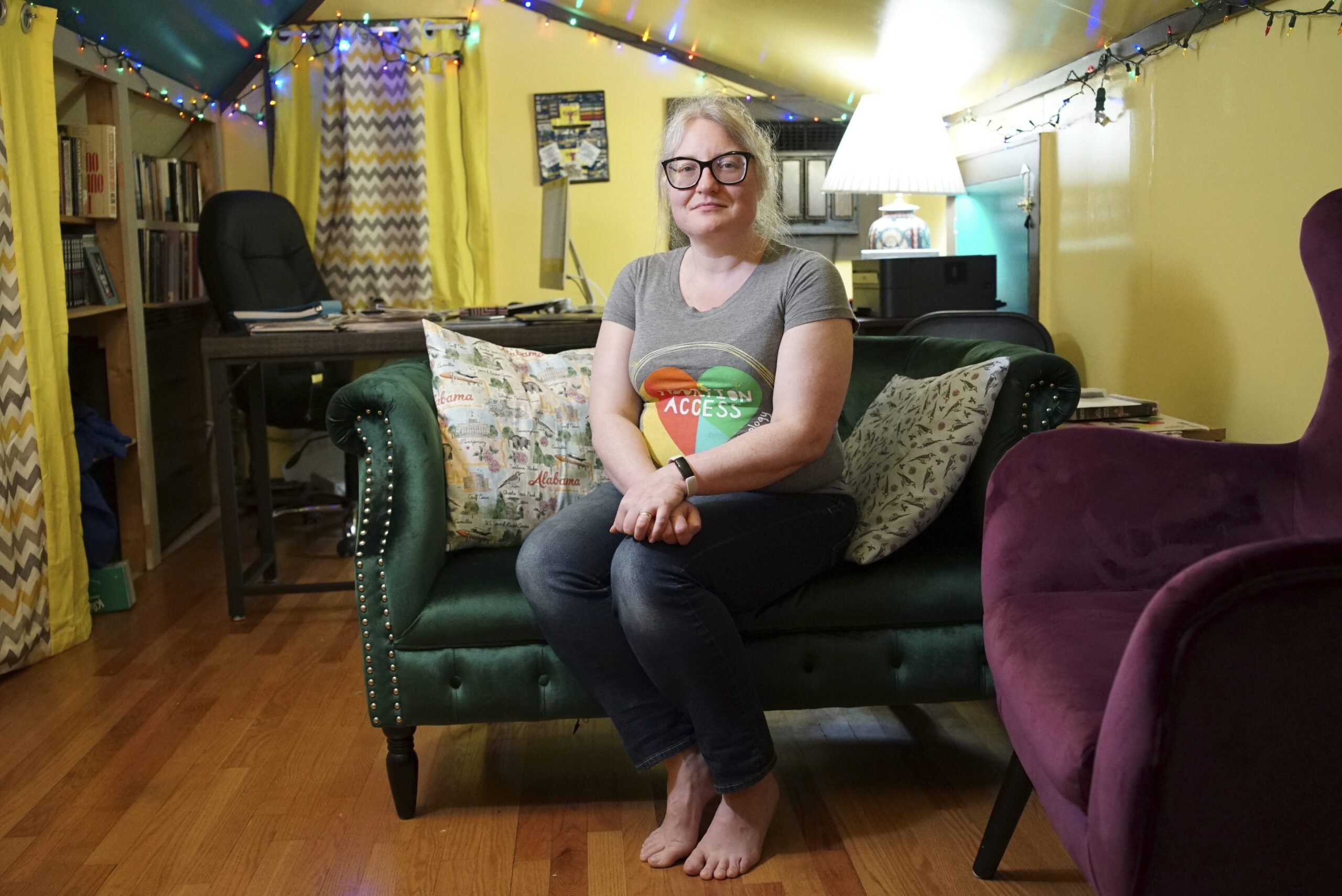
Even before the reversal of Roe, abortion clinics have been closing in higher numbers in the South due to stringent regulations, such as rules requiring clinics and doctors have relationships with hospitals in a certain geographical area before they can perform abortions. Abortion clinics have closed at twice the rate that new clinics have opened in the South over the past five years, according to a recent report by Advancing New Standards in Reproductive Health (ANSIRH), a reserach group at the the University of California San Francisco. ANSIRH estimates that more than 200 facilities will close as a result of the reversal of Roe. People of color, who are the least likely to have insurance coverage and most likely to live in areas where clinics will shutter for good, will face the highest barriers to access care.
During the past five years, the cost of abortion services also rose, while fewer clinics continued accepting insurance because setting up the systems to bill insurance companies is too costly and burdensome for clinics when so few patients they serve are insured, said Ushma Upadhyay, one of the co-authors of the ANSIRH report and a public health social scientist.
That means more patients have to pay out-of-pocket, making abortion out of reach for some. To help mitigate that, clinics started offering services on a sliding scale to try to serve as many people as possible. That all creates a shaky foundation that is ultimately “financially unfeasible” for clinics, Upadhyay said.
Alabama Women’s Center CEO Dalton Johnson has already seen services grind to a halt since last week, and the Huntsville clinic is unlikely to resume abortions. Johnson owns two other clinics that provide a full scope of OBGYN services, averaging about 300 deliveries a year between two physicians in those locations. But if the Huntsville clinic closes or shifts to an OBGYN model, Johnson said, that will impact revenue — and the other two locations.
He was hoping to open the second phase of a birthing center this year, but that, too, will be delayed now.
“The independent providers, with the financial strains, we are all on our own,” Johnson said.
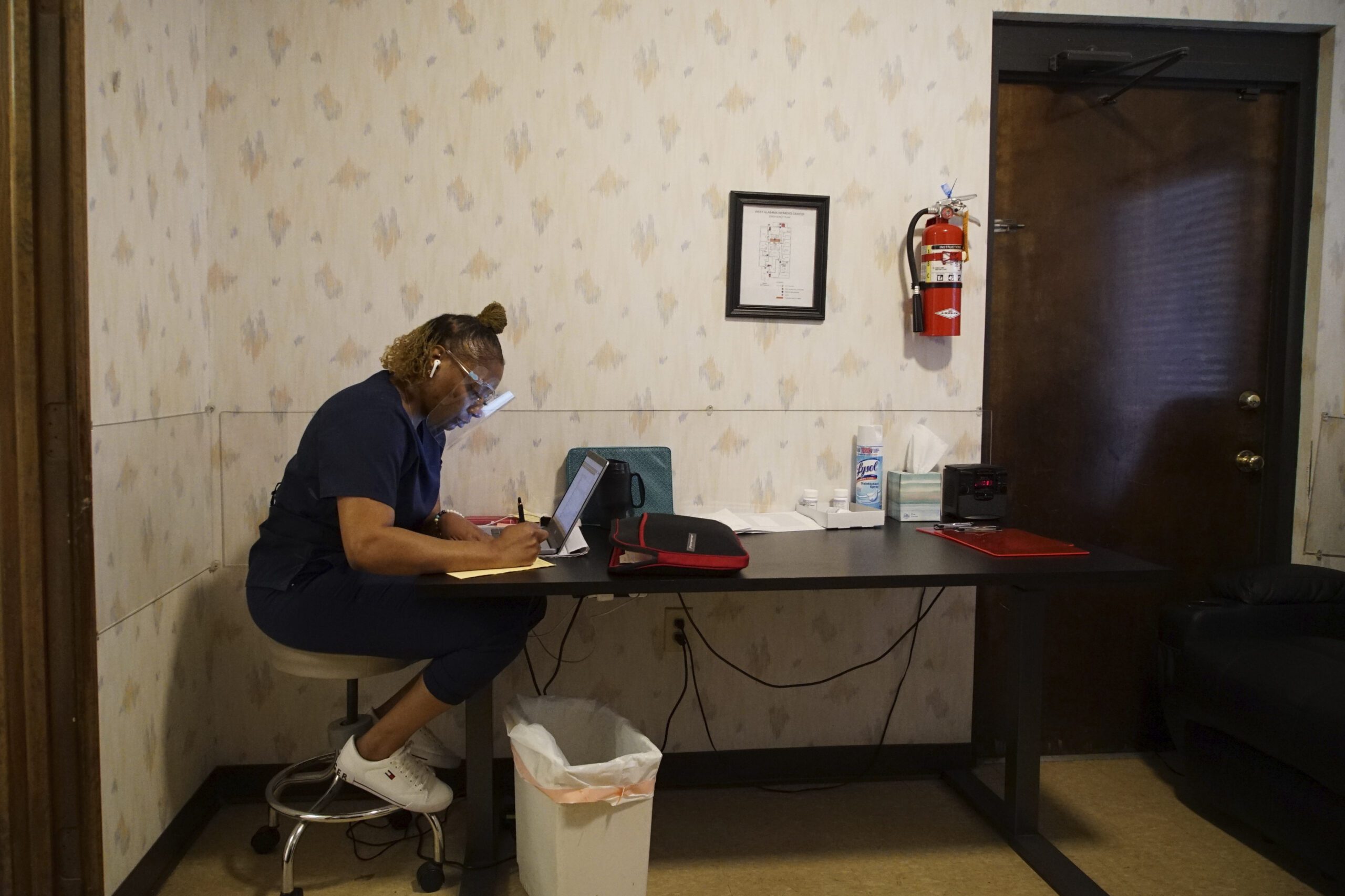
For 20 years, he has weathered court battles and restrictive regulations. He has taken money out of his retirement fund and life insurance to pay to relocate to a new site. He’s penny pinched, he’s fundraised and he’s fundraised some more — all to keep his clinics in Alabama open. But the fall of Roe may be what finally closes them.
“We haven’t dug ourselves out of the last hole when we had to relocate to another facility. … We’ve had legal fight after legal fight,” Johnson said. “All that money — you don’t get back, and we don’t have this fundraising machine.”
Johnson plans to shift what staff he can to their other two locations. But they will lose staff if they have to close, and that will also drain reproductive care skills and expertise from the state. Already, his Huntsville facility was the only one in Alabama performing second-trimester abortions or training medical residents in abortions.
Losing skilled staff will have a ripple effect across the country, even in states where abortion access is still protected and existing clinics don’t expect to close but to ramp up.
In Kansas, one of the few states in the middle of the country that is still open for abortion, “clinics are thinking: ‘How do we keep our people?’” said Zack Gingrich-Gaylord, the spokesperson for Trust Women clinics in Wichita, Kansas, and Oklahoma City. “It’s very skilled and specialized knowledge that is very hard to come by, especially in this region, and we want to hold onto that as long as we can because it’s very valuable.”
Abortions are banned in Oklahoma City, but the clinic is hoping to shift to some of the services it offered previously, including bith control, cancer screening, STI testing and gender-affirming care, finding staff to offer those services will be harder.
“Some of those services we are looking to bring back, it’s a little difficult when we don’t have doctors who live here,” Gingrich-Gaylord said. It’s common for abortion clinics to fly in personnel from other states, but with abortion services going away, that will be more difficult to afford.
That is precisely why Carafem, a network of abortion clinics and telehealth services operating in 16 states, has worked to expand abortion telehealth consultations. “In the South it was difficult to find physicians that could come into the health center without great expense,” said Melissa Grant, the chief operating officer of Carafem.
Further expanding telehealth now could mitigate some of the loss from clinic closures in states that allow it. Currently, 19 states ban the use of telemedicine to prescribe medication abortion.
In states where Carafem has physical clinics, including Tennessee and possibly Georgia, if it enacts a total ban, clinics will look to shift to a model that focuses on other reproductive services, while the telehealth side of the business ramps up to try to ease some of the pressure in “safe haven” states that are going to see an influx of patients. Patients in states that allow abortion could meet with doctors virtually early in their pregnancies and get the abortion pill mailed to them, freeing up room at clinics for patients from neighboring states who need to come access care in person.
“Is it solving the problem? Oh no, not even close. But that is a way to let some of the pressure off the health centers — that’s what we are hoping,” Grant said.
Ultimately, however, there will be many clinics that will not be able to operate at all.
Katie Quinonez, the CEO of Women’s Health Center of West Virginia, said during a news conference last Friday that her clinic’s budget will probably be slashed by 40 percent because it will have to stop offering abortions. The clinic also provides STI testing and treatment and other gynecological services at a sliding scale to uninsured patients.
“We are committed to keeping our doors open for as long as we can and adding new services to address the needs in our community,” Quinonez said. “But obviously, if we cannot close our budget debt, we might have to make cuts.”
Some clinics have only ever offered abortion, and it’s now too hard for them to shift to offer other services so they can stay open to continue to help patients seeking abortion, perhaps by referring them to other states.
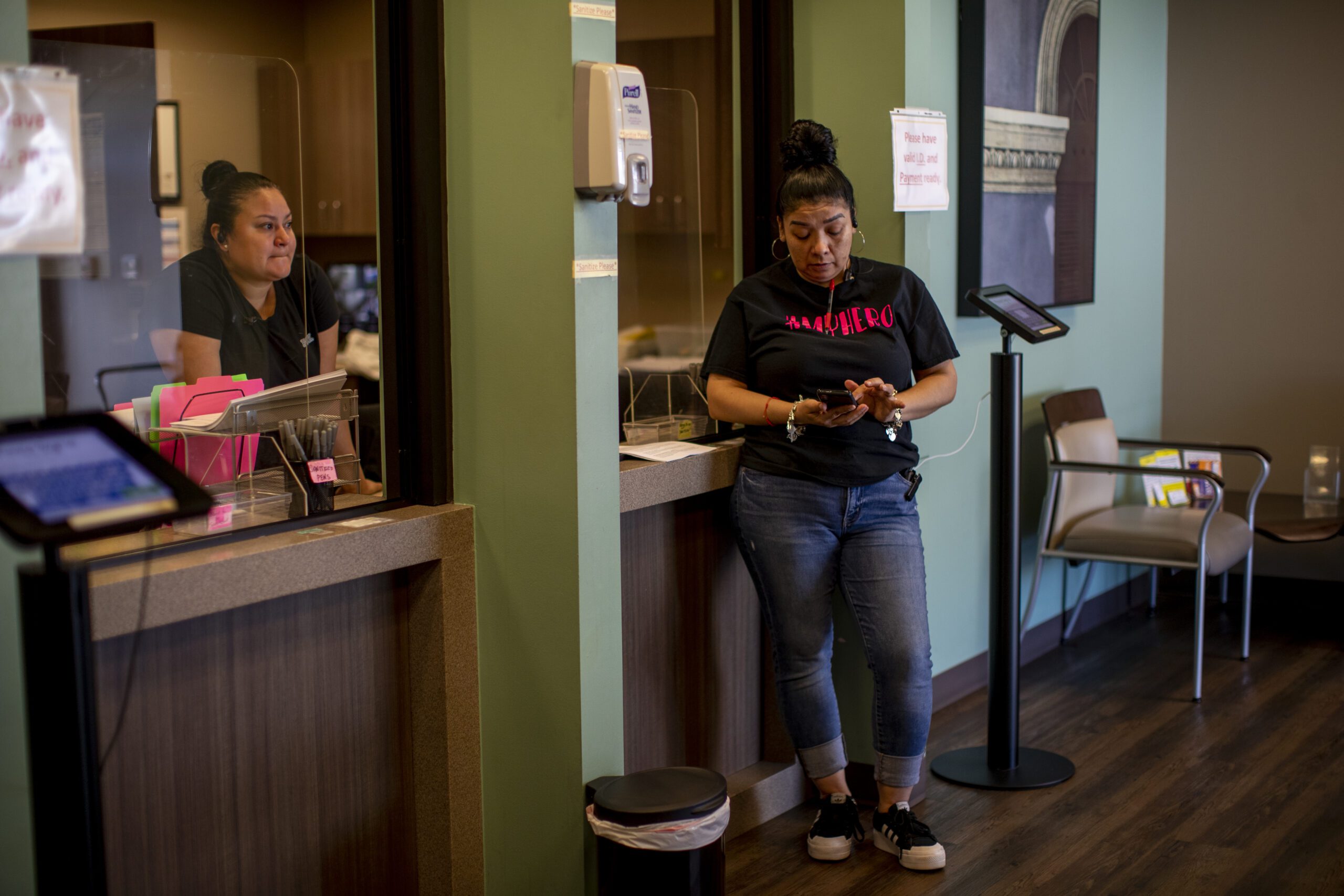
Whole Woman’s Health, a major abortion provider across five states, announced Wednesday it is closing its four clinics in Texas. It resumed services for a few days while the abortion ban in Texas was challenged in court, but with abortions now illegal again in the state, the clinics have no reserves to fall back on. Whole Woman’s only offered abortions by design to help make the procedure more accessible in Texas, said Marva Sadler, the senior director for clinical services for Whole Woman’s. Now, they’re raising funds to move to New Mexico, a state that will likely see an influx of out-of-state abortion patients.
At least two of the three clinics offering abortions in Louisiana are also facing the possibility of closure.
Amy Irvin, the spokesperson for Women’s Health Care Center in New Orleans and Delta Clinic of Baton Rouge, said the clinics have thought about offering other services. But if abortion becomes completely illegal in Louisana, it’s very likely the clinics will close — and instead focus on reopening in another state, where people from Louisana will be going to receive care, “only to wait in line alongside other women who have traveled as far,” Irvin said.
Among some clinics, a sense of resignation is already setting in.
“As we are all realizing,” she said, “the right to abortion — it’s really on its last breath.”
